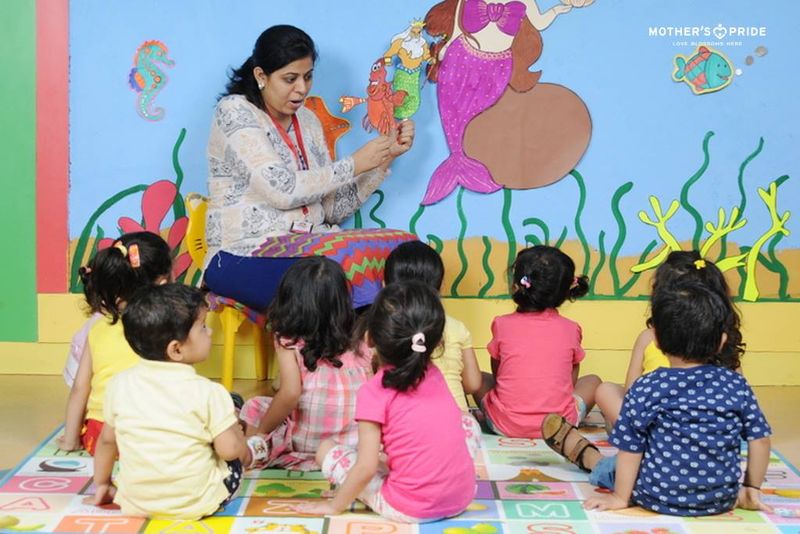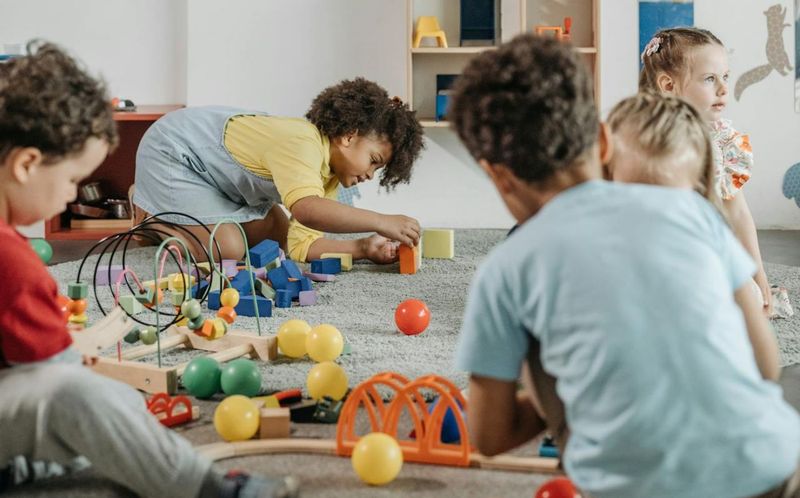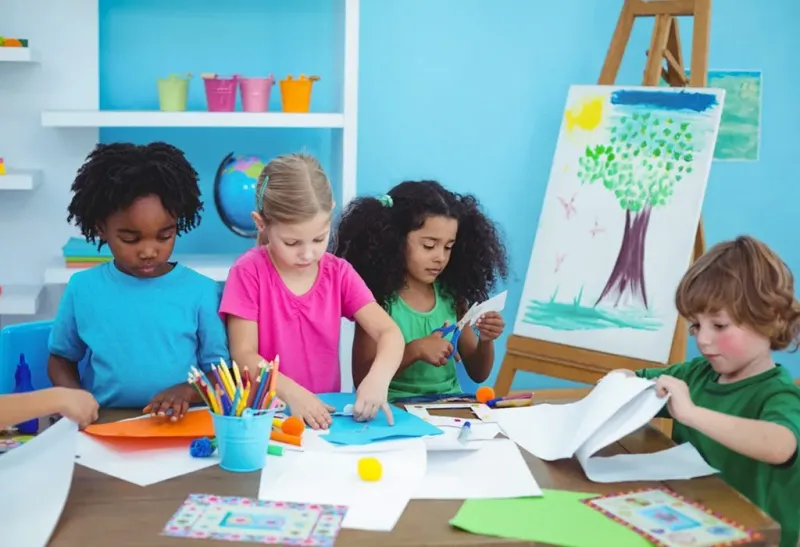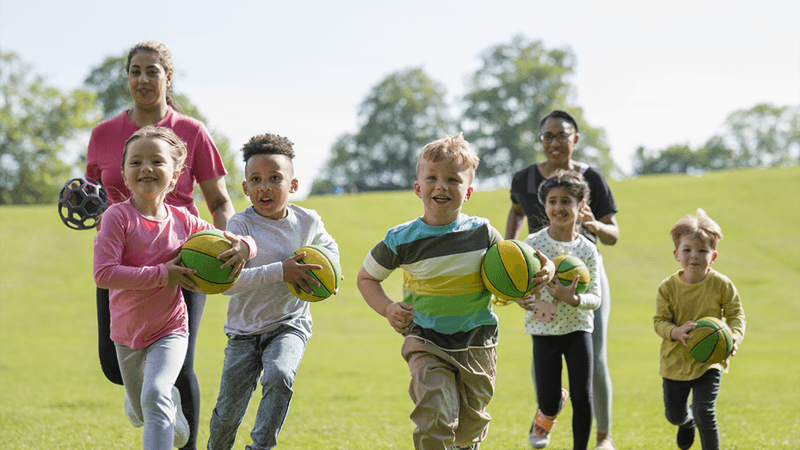The formative years of childhood are a time of wonder and discovery. During this critical period, children develop essential skills that shape their future and empower them to navigate the world with confidence. From fostering creativity to building social connections, the skills acquired before the age of 10 lay the groundwork for lifelong success.
Development experts emphasize the importance of nurturing a well-rounded set of abilities, blending cognitive, emotional, and physical growth. As parents and educators, understanding these pivotal skills can guide us in supporting our children’s journey, ensuring they thrive in an ever-evolving landscape. Let’s explore these key skills.
1. Emotional Intelligence

Emotional intelligence is like a bridge that connects a child’s inner world to those around them. Imagine a child who can recognize their feelings and express them with confidence and clarity. Such a skill not only fosters healthy relationships but also helps children manage their emotions effectively.
For instance, a child might feel frustrated when losing a game but can express their feelings without lashing out. This ability to empathize and communicate emotions sets a foundation for successful social interactions throughout life. Parents can nurture this skill by modeling emotional awareness and engaging in open conversations.
2. Basic Financial Literacy

Understanding the value of money is a crucial life skill that can be introduced early. Picture a child running a small lemonade stand, counting change, and saving money for a toy. These experiences teach the basics of earning, saving, and spending, laying the groundwork for sound financial decisions in adulthood.
By engaging in such activities, children learn about goal setting, delayed gratification, and the importance of budgeting. It’s never too early to instill these habits, and parents can support this skill by encouraging entrepreneurial activities or using piggy banks to teach savings.
3. Listening Skills

Listening is more than hearing; it’s about understanding and responding. Envision a child captivated by a storyteller’s voice, absorbing every word with rapt attention. Such engagement strengthens cognitive development and enhances communication skills.
A child who listens well can follow instructions, connect with others emotionally, and perform better academically. Encouraging storytelling sessions, playing listening games, or simply having focused conversations are ways to nurture this valuable skill. Parents and educators play a vital role by demonstrating active listening and providing opportunities for children to practice.
4. Problem-Solving Abilities

Problem-solving skills empower children to tackle challenges with confidence and creativity. Imagine children working together to piece a puzzle, discussing strategies and thinking critically. This experience fosters resilience and adaptability in real-world situations.
Problem-solving involves analyzing situations, considering options, and implementing solutions. It’s a skill that grows through play, experimentation, and guided exploration. Parents and teachers can encourage this by providing puzzles, brainteasers, or real-life scenarios that require thoughtful resolution.
5. Time Management

Mastering time management sets the stage for a balanced and productive life. Picture a child mapping out their day on a colorful planner, prioritizing tasks like homework, chores, and playtime.
By organizing their time, children learn responsibility, punctuality, and the importance of meeting deadlines. These habits not only enhance academic success but also build self-discipline. Parents can support this skill by involving children in creating schedules and setting routines, helping them appreciate the value of time.
6. Creative Expression

Creative expression unlocks a world of imagination and innovation. Picture a child absorbed in painting a colorful masterpiece, feeling free to explore and create without boundaries. Such activities foster emotional growth and cognitive development.
Art, music, and storytelling allow children to communicate feelings and ideas uniquely. Encouraging this skill helps nurture a child’s originality and self-confidence. Parents and educators can provide various mediums and platforms for creative exploration, celebrating every creation as a valuable expression of self.
7. Self-Care and Hygiene

Learning self-care and hygiene is fundamental for a child’s well-being and independence. Picture a child confidently brushing teeth and combing hair, cultivating habits that lead to a healthy lifestyle.
These routines teach responsibility, personal hygiene, and self-respect. By mastering self-care, children take charge of their health and build self-esteem. Parents can support this by creating engaging routines and offering gentle reminders, reinforcing the positive impact of self-care habits.
8. Basic Cooking Skills

Cooking is a delightful way to teach children about nutrition and responsibility. Imagine a child joyfully baking cookies, measuring flour and sugar accurately, creating a delicious treat to share.
Basic cooking skills encourage independence, creativity, and an understanding of healthy eating habits. Parents can nurture this skill by involving children in meal preparation, teaching them the nutritional value of different foods, and emphasizing the joy of cooking. It’s a wonderful bonding activity that also instills lifelong healthy habits.
9. Reading Proficiency

Reading opens doors to endless worlds and knowledge. Picture a child fully immersed in a captivating story, eyes wide with wonder as the pages turn. This skill enhances language development, imagination, and analytical thinking.
A love for reading nurtures curiosity and lifelong learning. Encouraging reading at an early age, providing diverse materials, and sharing stories together can foster this passion. Parents and educators can create an inviting reading environment, making books accessible and enjoyable.
10. Social Skills

Strong social skills are vital for building friendships and thriving in communal settings. Picture children laughing and working together during a group activity, forming connections that bring joy and understanding.
By interacting with peers, children learn empathy, cooperation, and communication. Parents can facilitate these interactions by organizing playdates or enrolling children in group activities, fostering a sense of community and belonging.
11. Basic Math Skills

Mathematics is a universal language that helps children make sense of the world. Imagine a child tackling math problems on a chalkboard, numbers and symbols coming to life. This skill enhances logical thinking and problem-solving abilities.
By mastering basic math, children gain confidence in handling everyday tasks like shopping or cooking. Parents and educators can support this by integrating math into daily activities and providing engaging resources that make learning enjoyable.
12. Empathy

Empathy is the heart’s ability to connect with others’ feelings. Picture a child gently comforting a friend who’s feeling blue, offering warmth and understanding. This skill builds compassionate relationships and enhances emotional intelligence.
Parents can nurture empathy by encouraging children to talk about their feelings and consider others’ perspectives. Storytelling and role-playing are effective ways to develop this innate ability, fostering a kinder, more connected world.
13. Environmental Awareness

Environmental awareness connects children to the world around them, fostering a sense of responsibility and care. Imagine children eagerly planting seeds in a community garden, learning about ecosystems and sustainability.
This skill nurtures stewardship and respect for nature. Parents and educators can encourage environmental awareness by involving children in outdoor activities, recycling projects, or nature walks, inspiring them to become mindful custodians of the earth.
14. Technological Literacy

In today’s digital age, technological literacy is crucial for future success. Picture a child deftly coding on a laptop, navigating the digital realm with ease. This skill empowers children to harness technology for learning, creativity, and problem-solving.
By understanding technology, children broaden their horizons and prepare for a tech-driven world. Parents can support this by providing access to educational software and encouraging safe online practices, ensuring children are tech-savvy and responsible.
15. Physical Fitness

Physical fitness lays the foundation for a healthy, active lifestyle. Picture children energetically playing soccer, running across a sunlit field, embodying teamwork and vitality. This skill promotes physical health, mental well-being, and social interaction.
Parents can encourage fitness by involving children in sports, dance, or outdoor play, making physical activity an enjoyable part of everyday life. These habits build resilience and self-discipline, crucial for a balanced, vibrant life.

Well, hello there!
My name is Jennifer. Besides being an orthodontist, I am a mother to 3 playful boys. In this motherhood journey, I can say I will never know everything. That’s why I always strive to read a lot, and that’s why I started writing about all the smithereens I came across so that you can have everything in one place! Enjoy and stay positive; you’ve got this!

